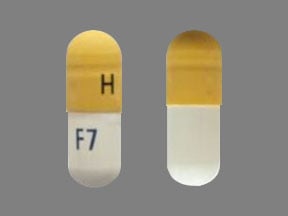
Fingolimod Coupons & Savings Card – Discount Prices from $168.30
Generic for: Gilenya
My prescription
Edit
0.5MG, Fingolimod (30 Capsules)
Select pharmacy

Walgreens
$168.30
COUPON PRICE
Walmart
$305.71
COUPON PRICE
Albertsons
$659.75
COUPON PRICEFingolimod savings card
Show this card to your pharmacist
Walgreens
$168.30
BIN
ID
PCN
GRP
019876
LH9BC020B6
CHIPPO
LHX
Powered by
More prescriptions for multiple sclerosis
More prescriptions for multiple sclerosis
Price history for Gilenya (brand) & Fingolimod (generic)
30 Capsules, 0.5MG
Average retail price for Gilenya
Average retail price for Fingolimod
Average SaveHealth price for Fingolimod
Our price history data is based on aggregated prescription data collected from participating pharmacies in America. Our prescription data updates daily to reflect the latest price changes. If you notice a missing data point, it means there wasn't sufficient data available to generate a monetary value for that date.
We analyzed Fingolimod prices for (0.5MG, 30 Capsules) over the last 12 months. The average retail price was $11104.80, while the average price using the SaveHealth discount card was $1221.35. That's a savings of approximately 89.00% when using our Fingolimod coupon.
Compared to the generic version, Gilenya had an average price of $14026.39 over the same time period. With the SaveHealth savings card, Fingolimod is 91.29% cheaper on average than Gilenya.
*Retail prices are based on pharmacy claims data, and may not be accurate when we don't have enough claims.
Fingolimod dosage forms
Dosage Quantity Price from Per unit 0.5MG 30 Capsules $168.30 $5.61
| Dosage | Quantity | Price from | Per unit |
|---|---|---|---|
| 0.5MG | 30 Capsules | $168.30 | $5.61 |
